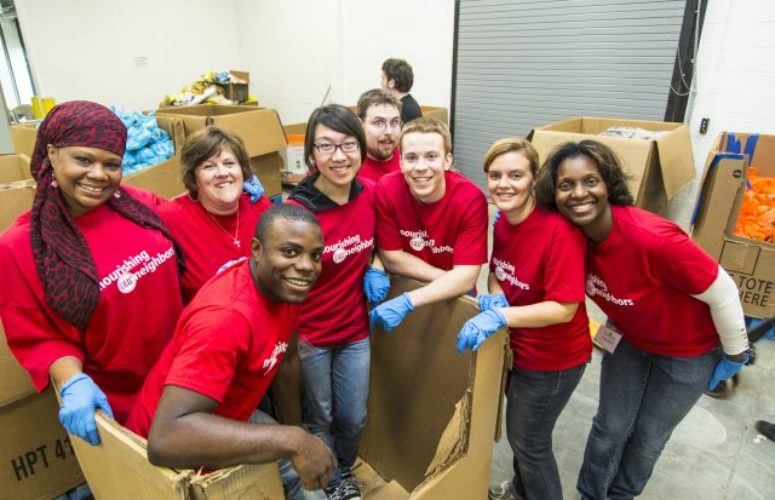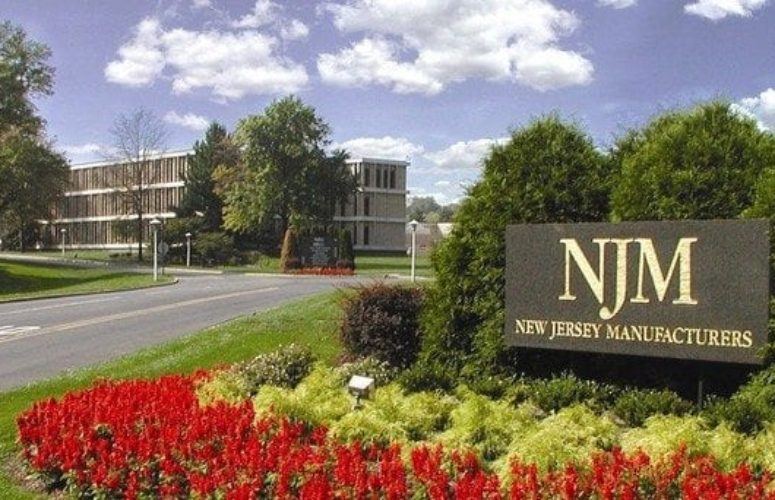
Philanthropy Flourishes
The gift of giving and volunteering is alive and well at businesses throughout New Jersey.
By Lisa Goulian Girard, Contributing Writer On Jul 22, 2016Corporate philanthropy is ingrained in the American fabric – putting forth the idea that our business community has been greatly blessed, and a portion of those blessings should be shared with those less fortunate. According to philanthropy.com, that philosophy is alive and well, with corporations increasing contributions last year by nearly 12 percent to $17.8 billion, and foundation support growing by 6 percent to $53.9 billion.
While encouraging, these numbers don’t tell the whole story. There are some emerging trends in corporate giving that show a shift from material donations to time- and skills-based contributions that are tough to measure on a ledger. “I think we’ve seen tremendous growth in corporations engaging their employees,” says Nina Stack, president of the Council of New Jersey Grantmakers, a Trenton-based organization that promotes philanthropy throughout the state. “It’s expanded tremendously, and companies have a lot of ways to do it, including department-wide volunteer days, programs like Dollars for Doers, and skills-based volunteering.”
Many corporations recognize the importance of employee engagement as part of their overall giving plan, particularly to the Millennial generation. It’s all about Shared Value, a management strategy created by Harvard professors Michael E. Porter and Mark R. Kramer that focuses on creating measurable business value by identifying and addressing social problems that intersect with a business’s operations.
“What it means is the company’s philanthropic work aligns with what they do as a business, where they have strength,” Stack says. “If it’s a financial company, they’ll look more at financial literacy and how to promote it, supporting nonprofits doing that kind of work, or supporting communities with limited access to building financial assets.”
For example, Solix, Inc., a Parsippany-based company that offers program administration and customer care services, began hosting an internship last year for students from a Newark prep school. Each semester, several students are placed in different areas of the company – such as IT, finance or communications – where they are mentored by department heads and receive hands-on experience learning more about areas they are interested in or discovering completely new fields of work. “The program has been rewarding for the students as well as for us,” says Gene King, Solix’s director of corporate communications and public affairs, whose own department intern gained insight into activities including media relations and press releases. “The students get a valuable opportunity to learn about business in a real world environment that their circumstances may not have provided them, and we have the chance to contribute early to their success,” King added. The company also has an active volunteer program that offers employees two full or four half days to support their charity or organization of choice – which has included everything from a local food pantry to Habitat for Humanity.
Community involvement is also important to Short Hills-based Investors Bank, headquartered in Short Hills, which created the Investors Foundation in 2005 and has since pledged more than $16 million in financial support and logged thousands of volunteer hours. “It’s not just about writing a check. We also offer our time and talent,” says Investors President and CEO Kevin Cummings, whose employees learn from the start that philanthropy is integral to the corporate culture. (Part of Investors’ three-day orientation/onboarding process includes volunteering for five hours on the final day.) “You have to be selfless in attitude here – team goals first, individual goals second,” Cummings says.
Investors also believes in taking up those causes supported by its employees: In May, the Foundation sponsored a Lupus Walk that raised $60,000 and saw 140 employees participate, and in June, it participated in the NJ Sharing Network 5K run to support this non-profit, organ procurement organization championed by one of its employees. According to Cummings, supporting these activities builds camaraderie and teamwork, which not only improves the work environment, but also helps the Investors’ brand in the marketplace. “Investing in the community is another way to advertise our brand and get the word out as to what makes us a different bank,” Cummings says. “It’s part of our brand personality, our logo, our core values, which drive everything we do and how we do it. We’re one of New Jersey’s largest banks, and we’re a local community bank that can be counted on when things are good or bad.”
The Campbell Soup Foundation, which has been around since 1953, also combines financial support – it donates more than $1.5 million a year to a variety of organizations – with hands-on help. “We believe real change is not just in philanthropic giving, but in the power of combining financial investments with the passion and skills of our employees, our capabilities as a food company, and the commitment and engagement of local community leaders and organizations,” says Kim Fortunato, director of community affairs and president of the Campbell Soup Foundation.
The Foundation supports 15 separate United Way campaigns, and also promotes access to fresh, nutritious and affordable food through Campbell’s Healthy Communities, a 10-year, $10-million initiative directed toward improving the health of young people in the company’s hometown of Camden and beyond to Connecticut, Ohio, Washington and Metro Detroit.
Similarly, The Robert Wood Johnson Foundation (RWJF), in its 40th year, partners with other organizations to improve the health of employees and the community in a three-pronged approach:
1) Strategic use of philanthropy — giving to the community via financial donations and non-cash contributions such as time, expertise and resources
2) Corporate social responsibility — promoting positive social and environmental change, even if there is not an immediate financial benefit to the company
3) Creating shared value — business policies and practices that enhance the competitiveness of a company while advancing economic and social conditions in the surrounding communities
Last fall, RWJF introduced an Action Framework for building a national Culture of Health, which categorizes funding and programming into themes such as Healthy Children, Healthy Weight, Healthy Communities, Transforming Health and Health Care Systems, and Leadership for Better Health. The Foundation works with other organizations, often outside their own industry, to advance these goals. “We are very aware that achieving a culture change in America takes unprecedented collaboration,” says Jordan Reese, RWJF’s senior communications officer. “At the same time, we also know we are far from alone in our belief that everyone should have the opportunity to lead a healthier life. And by working alongside many others, we can bring about meaningful change, now and for generations to come.”
Verizon takes a similar approach to philanthropy, developing programs first and then looking for the right partners to bring those programs to life. In 2015, HopeLine by Verizon – which connects survivors of domestic violence to vital resources, funds organizations nationwide and protects the environment – gave more than $250,000 to New Jersey organizations that combat domestic violence and promote safety of women, men and children across the state. These included 180 Turning Lives Around ($25,000 after a $100,000 contribution in 2014); Joe Torre Safe at Home Foundation ($65,000); and the Rutgers University Center on Violence Against Women and Children ($50,000). All told, the program gave $7 million in cash grants to domestic violence organizations in 2015, along with 700,000 mobile phones collected through the year.
Other Verizon initiatives include giving Verizon Innovative Learning Grants (each for $20,000) to Newark-based Dr. E Alma Flagg and George Washington Carver schools for a “Battle of the Apps,” in which students used math, science and engineering to design and launch mobile apps. “As a company, Verizon has always believed in a shared success model, and corporate giving is one way we are able to help the communities we serve and be more connected to our customers,” says Andrew Testa, Verizon’s PR manager for the Northeast market.
West Trenton-based NJM Insurance Group also supports a wide range of charities – generally in New Jersey – dealing with education, the homeless, financial literacy, and safety. “We evaluate each request separately, and if it’s from an organization with whom we haven’t partnered in the past, we research it, and may do an onsite visit and get to know the leadership,” says Patricia A. Hartpence, NJM’s assistant vice president. “We often look for causes where there are elements of financial literacy and safety, which align well with our industry.”
Donations come in a variety of forms and sometimes include surplus equipment, computers and more. For example, when NJM redesigned its cafeteria, the kitchen equipment was donated to a charity that provides meals. And when the NJM Wellness Center had an extra chair designed to evacuate the disabled, it was donated to a local fire company. NJM has been expanding its definition of the word “charity,” which now includes activities like reading to children, working with Habitat for Humanity and Junior Achievement as well as volunteering at HomeFront, Central New Jersey’s Family Campus for the homeless.
Employee involvement has become a more integral part of NJM’s philanthropy formula as well, with several volunteers coming back year after year, and the company matching donations given by employees and board members. In addition, employees who have been there for at least a year are allowed eight hours of excused work time to volunteer at their charity of choice two times each year. On NJM Family Night, employees can also purchase tickets to Trenton Thunder games with the knowledge that a company donation will be made to the Special Olympics for each ticket purchased. And through Jeans for Generosity, employees can pay $10 to wear jeans every Friday in the summer, with that money being put back into the community.
NJM has been stepping up its game even further in 2016, partnering with the Governor’s Office of Volunteerism to recognize its volunteers with a pin and a letter from the Lieutenant Governor. The company received a Jefferson Award for Public Service, also issued by the Governor’s Office, to recognize measurable community impact.
“We survey our volunteers to capture their impressions, survey the charities about their impressions of the volunteers, and then try to incorporate the information,” Hartpence says. “We’re trying to take a 360-degree look at these initiatives as well and make it better for all concerned.”
Related Articles:





